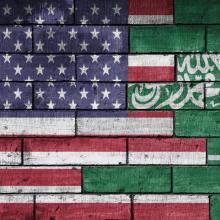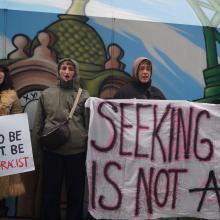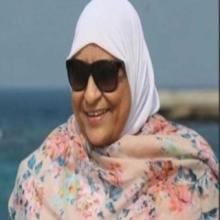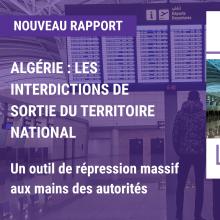March 12, 2020
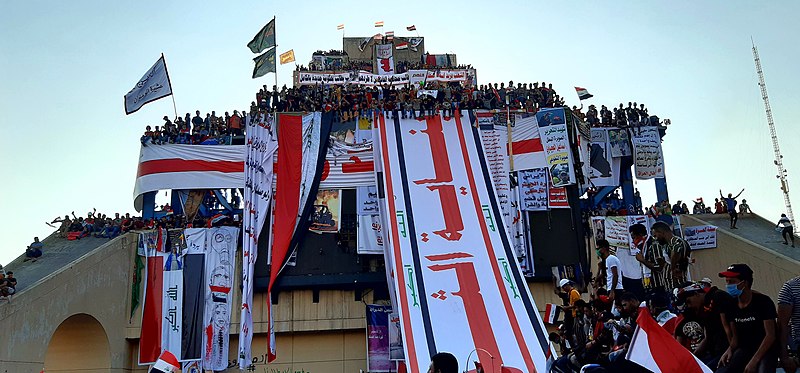
Following the Universal Periodic Review (UPR) of Iraq in November 2019, Iraq notified the Human Rights Council (HRC) of the recommendations it wishes to implement in the upcoming years. During the adoption of the UPR outcome, which took place on March 12, Iraq accepted most of the recommendations including on issues related to freedom of expression and peaceful assembly. However, recommendations relating to the ratification of additional human rights treaties, discrimination against women, LGBT rights, and the application of the death penalty were merely noted.
On November 11, 2019, Iraq’s human rights record was examined before the UN Human Rights Council (HRC) during the country’s third UPR. The UPR is a peer-review mechanism by which UN Member States make recommendations to the country under review on how to improve its human rights record. As part of this process, Iraq received 298 recommendations from 111 states. Of these recommendations, 245 received support, 48 were noted and 5 received partial support.
Human rights framework
The authorities rejected all recommendations relating to the ratification of all outstanding international human rights treaties, such as the Rome Statute of the International Criminal Court (ICC) and the Optional Protocol to the Convention against Torture and Other Cruel, Inhuman or Degrading Treatment or Punishment (OPCAT). Similarly, Iraq showed no willingness to recognise the individual complaints procedures of the various UN human rights treaty bodies.
Iraq agreed on the need to allocate sufficient financial and human resources to the High Commission for Human Rights, Iraq’s National Human Rights Institution (NHRI), in order for it to be able to carry out its mandate. This commitment could not be timelier as the Commission will be examined in October 2020 by the Sub-Committee on Accreditation (SCA) of the Global Alliance for National Human Rights Institutions (GANHRI) as part of a re-accreditation procedure. Established in 2008, the Commission was awarded B status by the SCA in 2015, due to its lack of compliance with the Paris Principles.
Freedom of expression and peaceful assembly
On October 1, 2019, protests erupted in Baghdad and several southern cities, calling for improved services and more action to curb corruption. The demonstrations were met by excessive and unnecessary lethal force by Iraqi security forces. According to the High Commission for Human Rights, more than 550 people have been killed and up to 30,000 more were wounded during the rallies, according to medical sources.
Iraq supported all recommendation calling upon the authorities to uphold the right to freedom of peaceful assembly and expression. In particular, it accepted the recommendation to “undertake prompt, thorough and impartial investigations of arbitrary killings linked to demonstrations that occurred since [October 2019], as well as into all allegations of torture and other ill-treatment, including enforced disappearances and summary executions, committed on any territory under its jurisdiction”.
Since October 1, 2019, MENA Rights Group has documented a dozen cases of demonstrators who were abducted after attending demonstrations, some of whom are still disappeared, such as human rights lawyer Ali Jasib Hattab Al Heliji. The High Commission for Human Rights recorded 72 cases of enforced disappearance as of February 2020.
Iraq accepted a recommendation made by Moldova to adopt the draft law on freedom of expression, assembly and peaceful demonstration in full compliance with international human rights law. However, MENA Rights Group notes that the draft law needs to be amended prior to adoption as the text, in its current form, contains several flawed provisions that would severely restrict the peaceful exercise of freedom of expression as well as the right of peaceful assembly in the country.
During the adoption of Iraq’s UPR, the Iraqi Representative at the United Nations, Abbas Kadhom Obaid Al Fatlawi, acknowledged that security forces employed disproportionate use of force against peaceful protestors at the beginning of the Iraqi protests. However, Al Fatlawi explained that special committees had been set up to prosecute perpetrators and that subsequent attacks against demonstrators were committed by "third parties" acting without the control of the government.
Counter-terrorism and human rights protection
Since Iraq’s second UPR in 2014, the fight against the so-called Islamic State of Iraq and the Levant (ISIL) escalated. It was marked by grave violations of international humanitarian law and international human rights law, committed by all parties to the conflict, including the indiscriminate and disproportionate targeting of civilians, widespread extrajudicial killings, enforced disappearances and arbitrary detention.
Iraq remains the country with the highest number of enforced disappearances in the world. The authorities routinely place detainees in terrorism-related cases outside the protection of the law through holding them incommunicado, in solitary confinement and in secret detention facilities for months if not years, creating an enabling environment for torture.
Between 2014 and 2017, the Iraqi forces, including militias from the Popular Mobilisation Forces (PMF), disappeared hundreds of actual, or perceived, Sunni Muslims from areas that were under ISIL control. Responding to a recommendation issued by the United States on the need to dismantle “undisciplined armed groups from Ninawa province”, Iraq indicated that the PMF operate under the control of the government while recalling its role played in the fight against ISIL.
Furthermore, Iraq still lacks a legal framework that could contribute to halting the widespread and systematic practice of torture and enforced disappearance. In order to remedy this situation, the authorities agreed, at the behest of Malta, to “continue with the drafting of legislation aimed at preventing torture and curbing enforced disappearances with the aim of bringing it in line with international obligations.” Two draft laws are currently pending before the Iraqi parliament, but they fall short of the applicable international standards.
Death penalty
Several States expressed concerns about the continued use of the death penalty. Yet, Iraq refused to open the way for ratification of the Second Optional Protocol to the ICCPR, aimed at the abolition of the death penalty (OPII ICCPR).
Iraq’s frequent use of the death penalty resulted in 125 executions in 2017 and 52 in 2018, making it the world’s fifth executioner according to Amnesty International. Iraq’s domestic law authorises the use of the death penalty for crimes that do not meet the threshold of the “most serious crimes”, including Law No.13 of 2005 on counter-terrorism, which contains a broad definition of terrorism that is susceptible to wide interpretation.
Next steps
Iraq is now responsible for implementing the accepted recommendations ahead of its next review, which will take place in 2024. The authorities also announced that a midterm report will be drafted on initial efforts to put the recommendations into effect.

